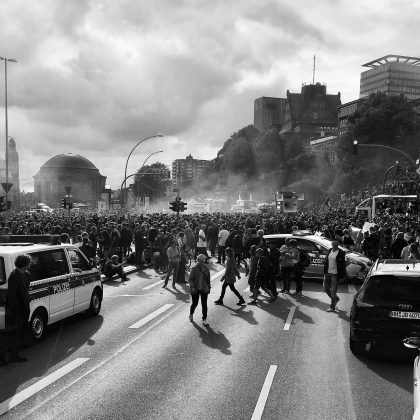The Troubled Families Programme: the ghost of policy past, present and future?
The Troubled Families Programme is once again back in the news. Launched in the aftermath of the 2011 riots, with the explicit aim of ‘turning around’ the 120,000 most ‘troubled families’ in England, it was one of the most high-profile social policies of the Coalition Government. Regular government publications, progress updates, press releases, interviews and speeches relating to the Programme ensured that it was regularly in the news in its first phase. The first phase was declared to be a ‘real government success’ by then Prime Minister David Cameron, with 99% of ‘troubled families’ ‘turned around’.
Now in its second phase, and working with 400,000 more ‘troubled families’, the government have sought to lower the profile of the Programme. No figures for the number of families worked with have been published since June 2015. Its charismatic lead Louise Casey has been seconded away from the Programme. In terms of accountability, the official evaluation of the first phase of the programme has allegedly been ‘suppressed’ due to its damning findings that it had little ‘discernible impact’ across a number of key areas.
In spite of this, or maybe because of it, people outside of government are beginning to rekindle their interest in the Programme. A BBC Newsnight investigation into the suppressed evaluation report was widely covered in the media, and it prompted the Public Accounts Committee to announce a second inquiry into the programme. A Channel 4 Dispatches programme, aired on 17 October, offered alternative accounts of the impact of the programme from academics, practitioners and families.
One group that didn’t adhere to the government line about the Programme being a remarkable success, and which didn’t lose interest when the public profile of the programme dropped, were social policy academics and historians who have remained steadfast in their interest in and critique of the Programme. In early 2015, at the height of the putative ‘success’ of the Programme, the Social Policy Association funded and hosted three seminars examining historical, sociological and empirically informed accounts of the Programme. Papers from these workshops have recently been published, as part of a Social Policy and Society themed section aimed at ‘getting with the (troubled families) programme’.
We provide a review of the programme and attempt to locate it in its political and historical context. Historians John Macnicol and John Welshman in their articles have highlighted continuities between the idea of an ‘underclass’ and current anxieties about ‘troubled families.’ In particular, links between the ‘problem families’ of the 1940s and the ‘troubled families’ of today are demonstrated. Three articles, by Alex Nunn & Daniela Tepe-Belfrage, Aniela Wenham, and Sue Bond-Taylor then examine contradictory elements of the policy. They explore the gaps between the rhetoric of politicians and civil servants and the reality of the Programme as it is delivered and experienced ‘on the ground’. The themed section is completed by Andrew Sayer, whose paper addresses the problem of how to discuss concepts such as ‘troubled families’ without appearing to accept, endorse or offer legitimacy to the label, or the framing of social problems that they represent.
Whilst we believe the critiques advanced in the themed section are comprehensive, they are not exhaustive. Others have also contributed interesting accounts. And the ‘troubled families’ saga is still unfinished.
Click here to read the whole themed section, with free access until 31st January 2017.
About the authors:
Michael Lambert is a PhD student in the Department of History at Lancaster University studying ‘problem families’ and the welfare state in post-war Britain. He will shortly be taking a position as a Post-Doctoral Teaching Fellow in Early Childhood Studies at Liverpool Hope. He is the co-editor, along with Stephen Crossley, of a forthcoming themed section of Social Policy and Society entitled ‘Getting with the (troubled families) programme.’ He tweets @GrandCamouflage.
Stephen Crossley is a Senior Lecturer in Social Policy at Northumbria University and a PhD student in the School of Applied Social Sciences at Durham University. He has a blog on the Troubled Families Programme at www.akindoftrouble.wordpress.com






